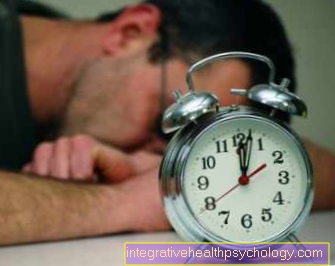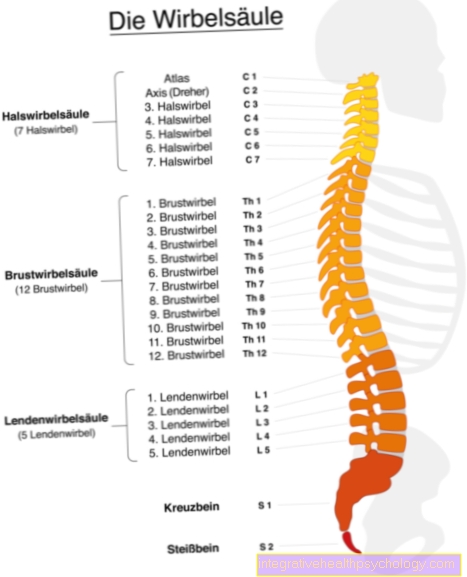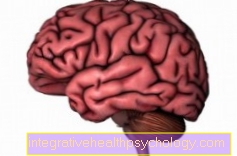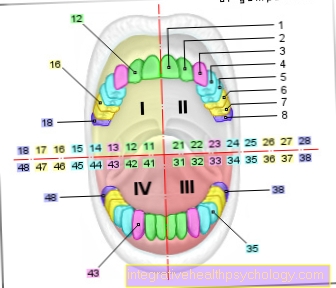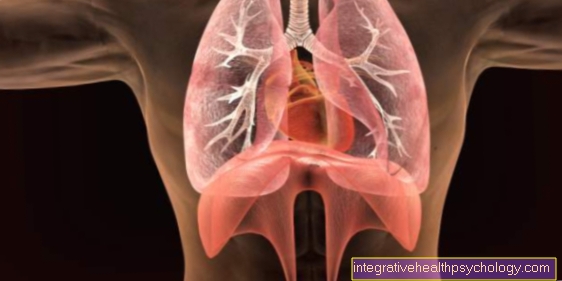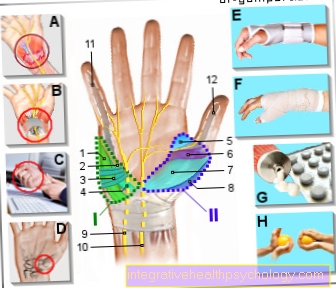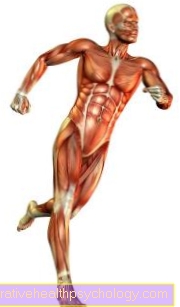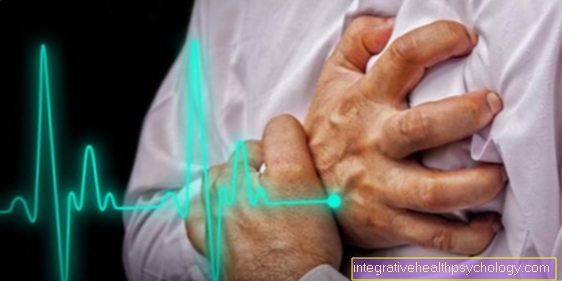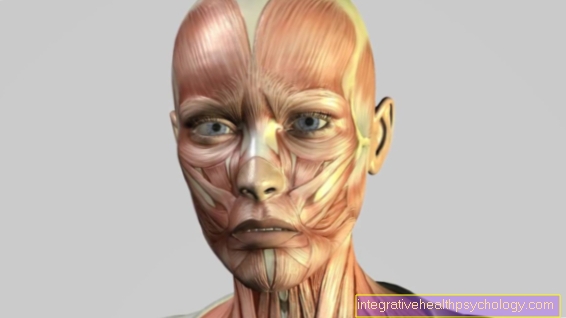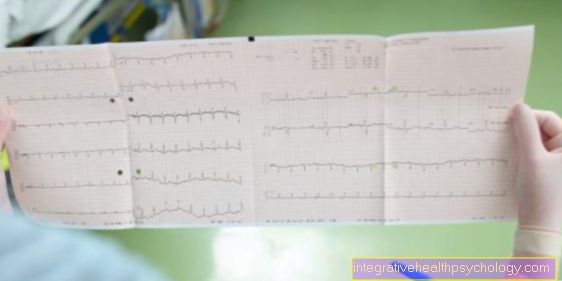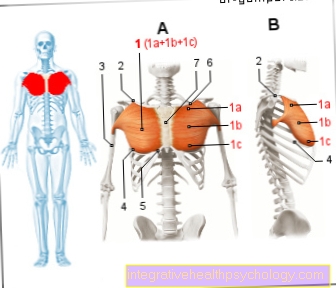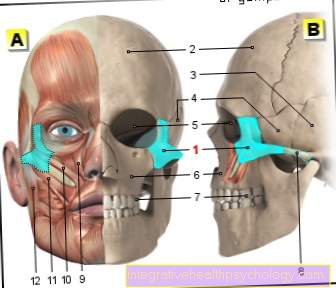Depression or Burnout?
What is Depression?
Depression is a mental illness that has 3 main symptoms:
- a clearly depressed mood with deep sadness
- a pronounced reduction in drive
- Loss of interest
- lack of joyful ability
At least 2 of these symptoms must be present for a diagnosis of depression. Depression is divided into mild, moderate and severe. When diagnosing major depression, all 3 main symptoms are present.

In addition to the main symptoms, there are secondary symptoms. These include:
- Sleep disorders (Difficulty falling asleep and staying asleep, waking up early),
- Morning low
- Decreased appetite and weight loss
- Decreased self-esteem
- Feelings of guilt
- Suicidal ideation
- Concentration disorder or poor concentration
- Brooding tendency
Read more about other symptoms of this mental illness under: Signs of depression
Especially in men who suffer from depression, there is often increased irritability and aggressive behavior. The treatment of moderate and severe depression is usually carried out through drug and / or psychotherapeutic therapy, which lasts for months to years.
Would you like to learn more about this topic? Read our new article: How can you recognize depression?
What is burnout?
Burnout syndrome is also one of the mental illnesses. The name is derived from the English, "burnout" means something like burn out. Burnout syndrome is currently not one of the diseases explicitly included in the classification of mental illnesses. Initially it was more of a “fashionable term”, but has now also established itself in medical parlance. Burnout syndrome usually begins slowly.
In the fully developed stage it comes to:
- strong experience of being overwhelmed
- exhaustion
- pronounced decrease in performance
- the feeling of constant failure
- a so-called depersonalization
This means that those affected distance themselves further and further from everything in the course of their illness. There is a growing indifference to the things that were otherwise important, especially in professional life. The main cause of the development of burnout syndrome is constant stress, primarily stress of a professional nature. A lack of recognition for professional achievements also plays a decisive role.
You can get more on this subject at: Symptoms of Burnout Syndrome
What is the connection between burnout and depression?
The main connection between burnout syndrome and depression is that they partially overlap in terms of symptoms. Both diseases can lead to a feeling of being overwhelmed and to a reduced drive with a drop in performance. The mood is also depressed with both diseases. Typically, both diseases are also associated with sleep disorders. There used to be the term exhaustion depression. The burnout syndrome has, so to speak, replaced this term, only that it is not a depression in the narrower sense, even if the symptoms overlap in many areas.
Most importantly, if left untreated, burnout syndrome can develop into depression. From a hierarchical point of view, severe depression is an even more threatening clinical picture than burnout syndrome, even if burnout syndrome is very agonizing for those affected. However, specific thoughts of suicide occur much more frequently in depression than in burnout syndrome. So the depression is the result of an untreated burnout syndrome. This shows how important it is to recognize burnout syndrome and to treat it adequately.
You can read more about this under: Symptoms of Burnout Syndrome
In contrast to depression, there are currently no recommendations for the drug treatment of burnout syndrome. In the following article you will learn how to treat a burnout syndrome properly: Treatment of burnout syndrome. In particular, psychotherapeutic methods are used. If there are significant symptoms of depression, the use of antidepressants should be reconsidered. Often a sick leave is also necessary. The person affected must first develop from the environment that overwhelms him and develop strategies that help him to deal better with the triggering situations.
How is depression different from burnout?
In most cases, burnout syndrome has a relatively clearly identifiable cause. Most susceptible to a burnout syndrome are people who place high demands on themselves, who achieve a lot at work and who do not admit to being overwhelmed at first, but always go beyond their performance limits. Certain occupational groups are particularly prone to developing burnout syndrome. On the one hand the social occupational groups (Nurses, doctors, teachers) and also police officers, as their work is emotionally demanding and extreme interpersonal situations often arise.On the other hand, it often affects people in managerial positions who always perform excessively and from whom more is still expected.
So the big difference between burnout syndrome and depression is the trigger. In many cases of depression there is no trigger to be found; it often arises from within and without a specific trigger from outside. The burnout syndrome, on the other hand, clearly has in most cases a combination of ongoing professional stress, a lack of professional recognition and overload as trigger factors.
Another difference is that burnout syndrome often develops gradually over months or years. Depression, on the other hand, quickly shows symptoms in a more pronounced form.
There are also differences in treatment (see also: Therapy of depression, therapy of burnout syndrome). While the success of drug treatment with antidepressants is known for depression, there are no drug treatment strategies for burnout syndrome. Probably also because the solution seems to be obvious in a burnout syndrome: The person affected has to change his behavior and his demands on himself and learn to take care of himself. However, such a strategy cannot be developed in the case of depression that has no outside trigger.
Which doctor treats depression and burnout?
A psychiatrist and / or psychologist should usually be consulted at least initially to diagnose and treat depression. It must first be decided whether drug and / or psychotherapeutic therapy is necessary. In many cases, depression also requires inpatient treatment in a psychiatric ward. Especially at the beginning, depending on the symptoms, there is a high risk that those affected will harm themselves. In addition, drug cessation is easier when the patient is in hospital.
A psychologist or psychiatrist should also be consulted with a pronounced burnout syndrome. Primarily to decide whether psychotherapeutic therapy makes sense. However, the family doctor can usually serve as the first point of contact for both diseases. He can initiate the first diagnostic steps and decide how to proceed.
That could be interesting for you too: How can you prevent depression?
Can burnout turn into depression?
Burnout syndrome is a stressful disease for those affected. Nonetheless, as mentioned above, the main danger of burnout syndrome is that it worsens and ultimately turns into depression. This happens especially when those affected do not pull the handbrake and continue to work despite their complaints without seeing a doctor or taking a break. Measures should be taken to prevent the transition from burnout syndrome into depression. The first step here can be to consult your family doctor.

